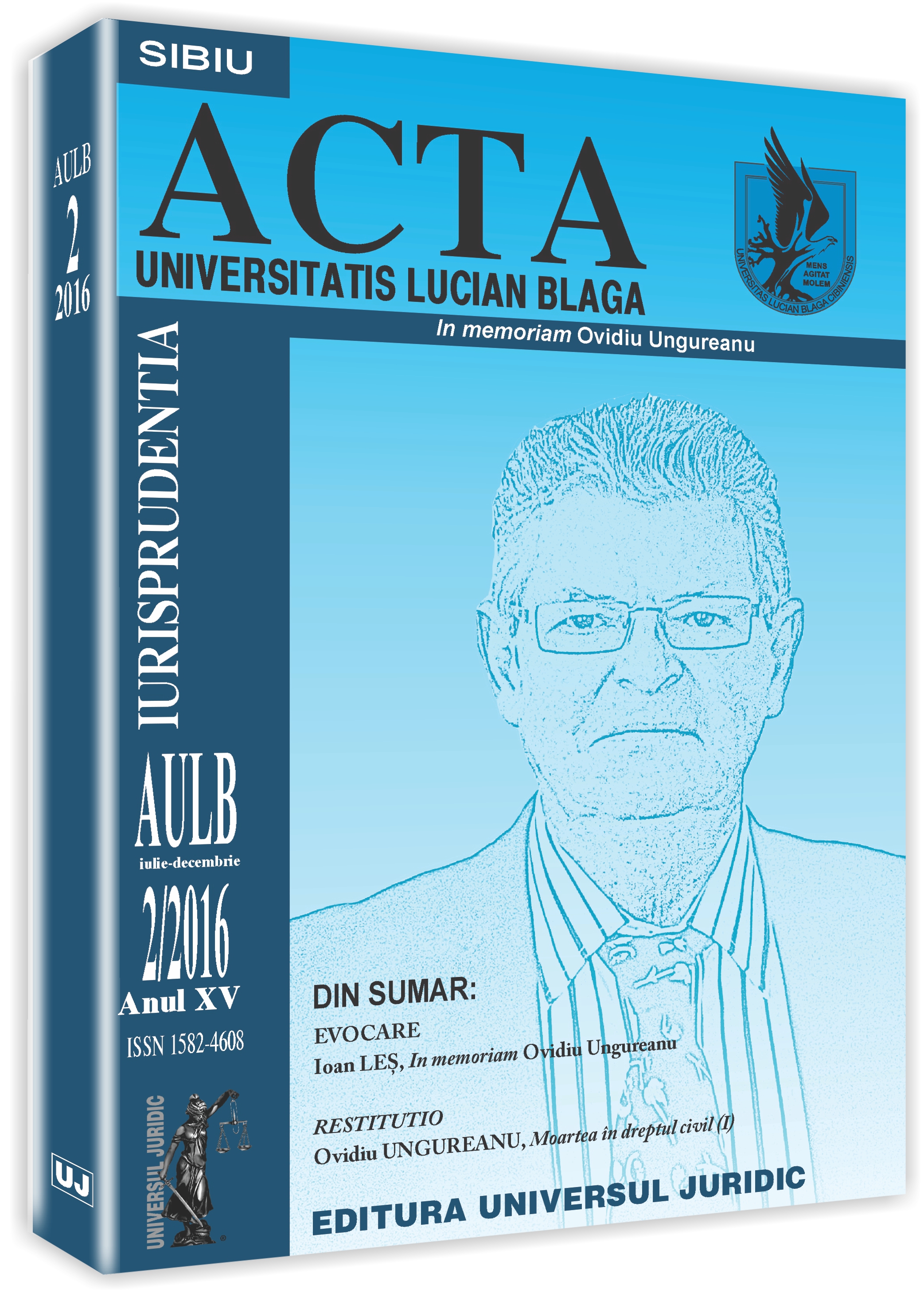Leziunea şi impreviziunea – ipoteze distincte de reducere a prestaţiilor datorate
Prejudice and the hardship principle – distinct
hypotheses on cutting benefits
Author(s): Lazăr Raluca ȘtefaniaSubject(s): Law, Constitution, Jurisprudence
Published by: Universul Juridic
Keywords: contract; unforeseen change of circumstances; excessively onerous; pacta sunt servanda; rebus sic stantibus;
Summary/Abstract: From a utopian perspective, the contract may be considered to be a union of balanced interests, an instrument of loyal cooperation and a result of the mutual confidence between the parties. But the complexity of modern contractual relationships and, in general, of the social and economic environment, requires similar weight to be given to values other than the classical values of freedom, security and certainty. Thus, solidarity and flexibility have gained importance. In this context, the recognition of a change of circumstances as a remedy for the affected party may be considered as another aspect of the renewed importance of justice and fairness as a counterbalance to the general principle of freedom of contract. In particular, the affected party is entitled to rely on a proper set of remedies directed at the restoration of the agreement until the limit of an adequate sacrifice for the debtor, which includes the duty to renegotiate and in the case of the renegotiations failing, the revision of the contract by the courts. The subject of change of circumstances, hardship, the situation where the performance of the contract has become excessively onerous or difficult for one of the parties due to unforeseen circumstances after the conclusion of that contract, is a polemic and controversial one. It is frequently introduced as a conflict between principles (pacta sunt servanda and rebus sic stantibus) or values (certainty and justice).
Journal: Acta Universitatis Lucian Blaga. Iurisprudentia
- Issue Year: 2016
- Issue No: 02
- Page Range: 162-182
- Page Count: 21
- Language: Romanian
- Content File-PDF

